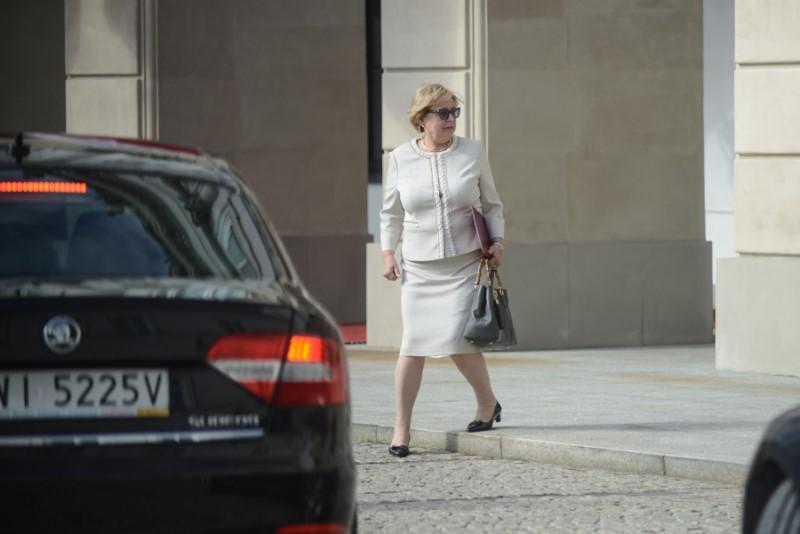WARSAW—Malgorzata Gersdorf, who the Polish government says is now retired, but who insists her constitutional term as the head of the Supreme Court runs until 2020, walked into the court on July 18 saying the situation was “very tense and dramatic.”
Gersdorf is now at the heart of a rule of law dispute in Poland, the largest ex-communist member of the European Union.
She defied new laws that, according to members of the ruling Law and Justice (PiS) party, mean she has been dismissed and no longer has the power to make decisions at Poland’s top court.
“According to the law, Madame Gersdorf is a retired Supreme Court judge. According to law, all decisions she could make are invalid,” a senior PiS lawmaker, Marek Ast, told Reuters on July 18.
The constitution stipulates a six-year term for the head of the Supreme Court, but it also gives parliament the authority to impose a retirement age on judges. After setting the age at 65, PiS lawmakers argue that 65-year-old Gersdorf’s term is no longer valid.





